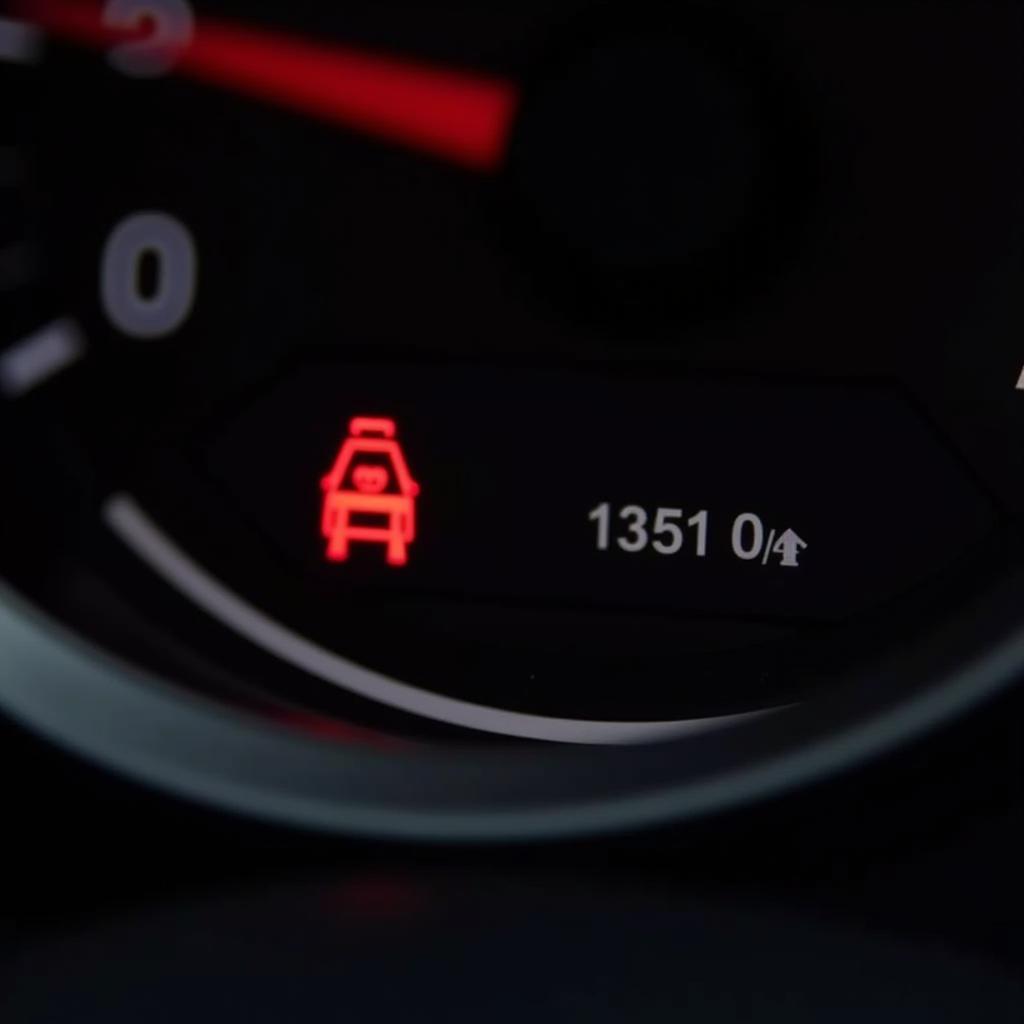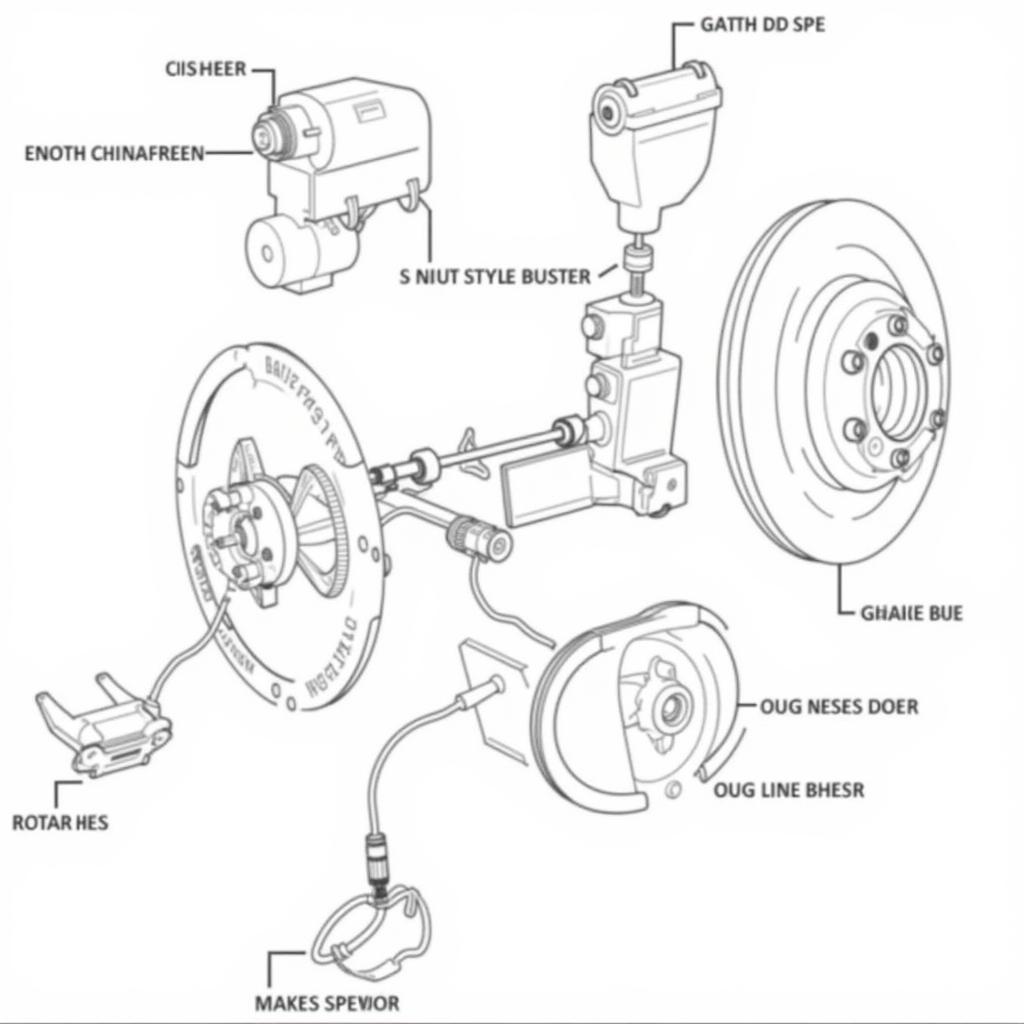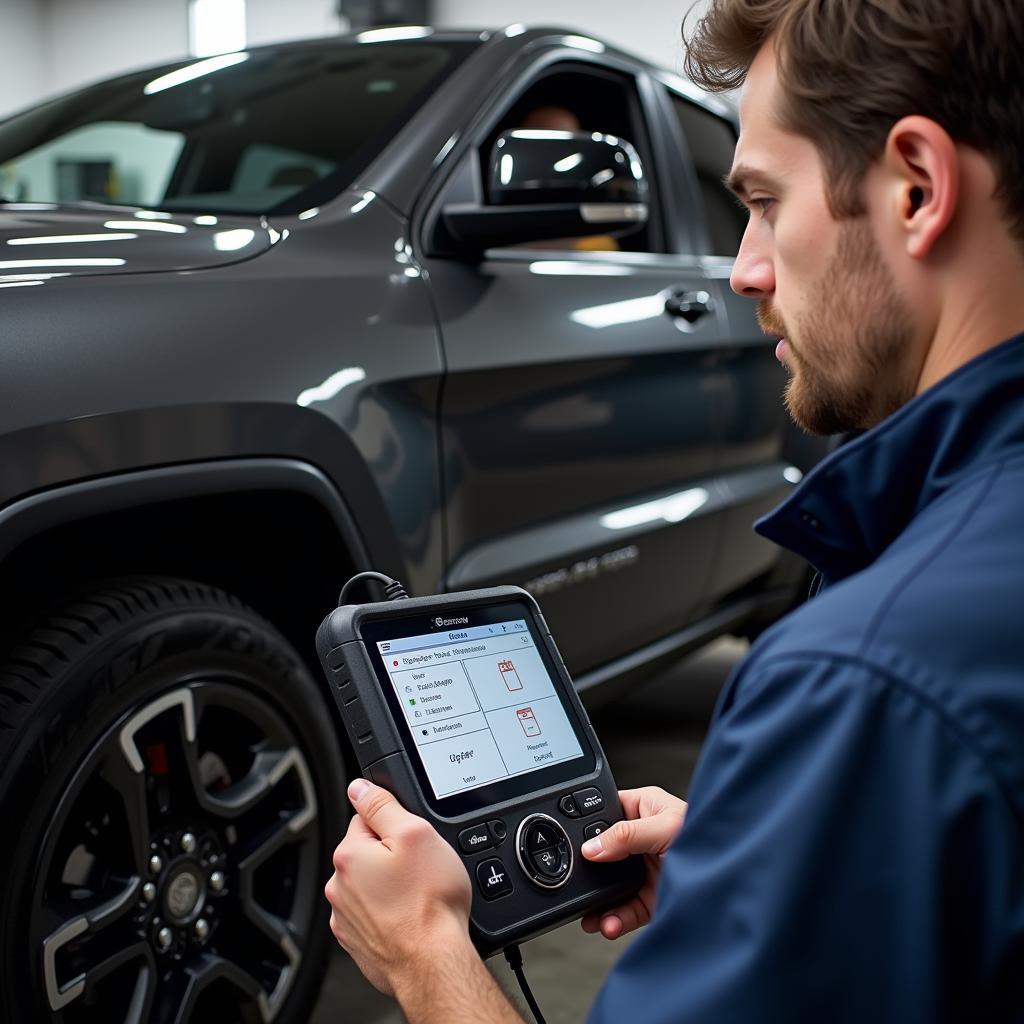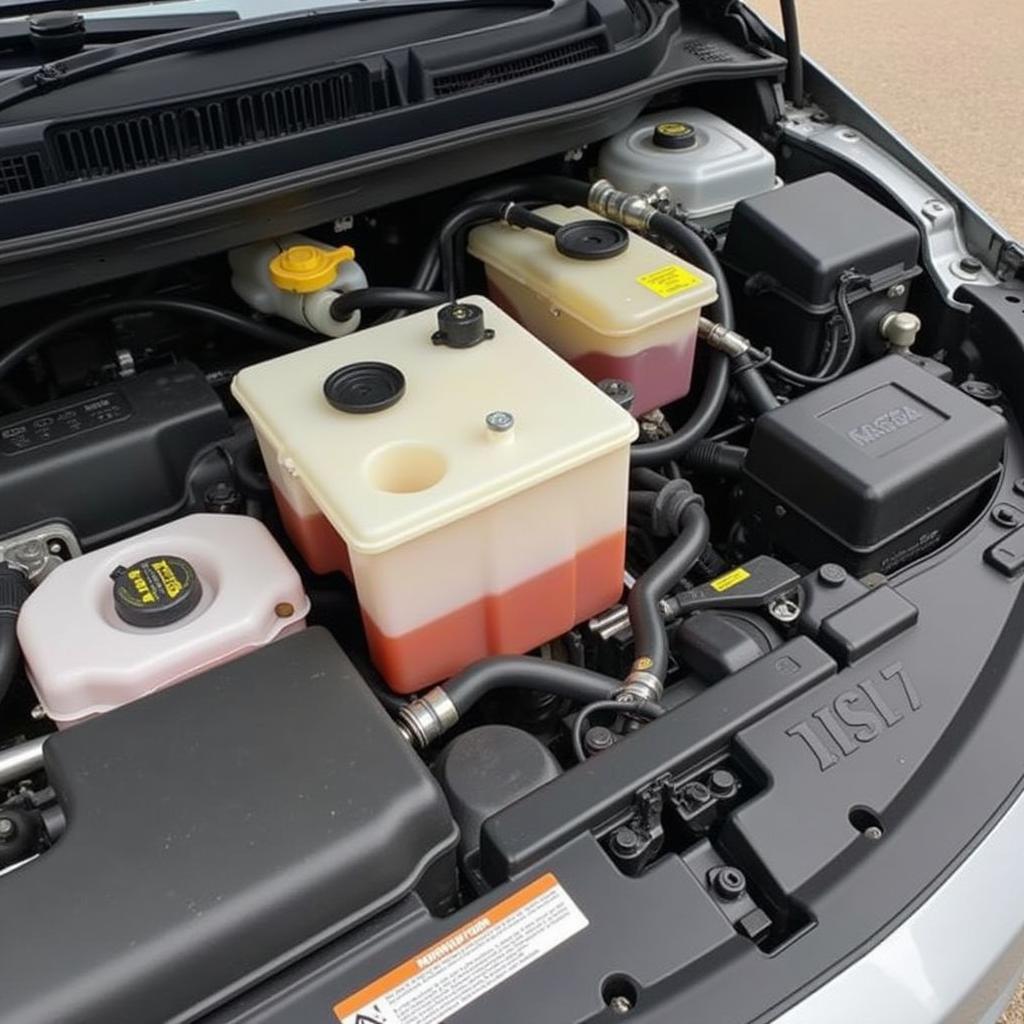The brake warning light on your Jeep Grand Cherokee is a crucial safety feature, designed to alert you to potential issues with your braking system. However, there are instances where the warning light might illuminate even when there’s no actual problem. This can be due to a temporary glitch, a faulty sensor, or even after a routine maintenance procedure. While it’s crucial to never ignore a brake warning, knowing how to disable it temporarily or troubleshoot the underlying cause can be beneficial.
 Jeep Grand Cherokee Brake Warning Light on Dashboard
Jeep Grand Cherokee Brake Warning Light on Dashboard
Understanding Your Jeep Grand Cherokee’s Brake Warning System
Before attempting to disable the brake warning light, it’s vital to understand what triggers it. The system relies on several components, including:
- Brake Fluid Level Sensor: This sensor monitors the brake fluid level in the master cylinder. A low fluid level, often due to a leak, can trigger the warning light.
- Parking Brake Switch: Engaging the parking brake activates this switch, turning on the brake warning light. If the switch malfunctions or the parking brake isn’t fully released, the light might stay on.
- ABS Wheel Speed Sensors: These sensors, located at each wheel, play a crucial role in the Anti-lock Braking System (ABS). A faulty sensor can disrupt the ABS system and trigger the brake warning light.
- Electronic Brake Control Module (EBCM): This module acts as the brain of the braking system, receiving input from various sensors and controlling the ABS and Electronic Stability Control (ESC). Issues with the EBCM can lead to a range of braking problems, including a false warning light.
 Components of Jeep Grand Cherokee Brake System
Components of Jeep Grand Cherokee Brake System
Common Reasons for a False Brake Warning
While a genuine brake issue is a possibility, several common scenarios can trigger a false warning light:
- Recent Brake Work: If you’ve recently had work done on your brakes, such as replacing brake pads or rotors, the brake warning light might stay on due to a disturbed sensor or a minor error during the reset procedure.
- Loose Gas Cap: Believe it or not, a loose or improperly sealed gas cap can affect your vehicle’s evaporative emissions system, sometimes triggering the brake warning light.
- Battery Voltage Fluctuation: Significant fluctuations in battery voltage, such as during a jump-start, can momentarily disrupt the vehicle’s electrical system, potentially affecting the brake warning light.
Disabling the Jeep Grand Cherokee Brake Warning: Proceed with Caution
Important: Attempting to disable the brake warning light without addressing the root cause can be dangerous. If you suspect a genuine brake problem, consult a qualified mechanic immediately.
The methods described below are for informational purposes only and should be used with extreme caution.
- Check for Simple Solutions: Before delving into more complex solutions, ensure the parking brake is fully disengaged and the gas cap is securely tightened.
- Disconnect Battery: Disconnecting the vehicle’s battery for a few minutes can sometimes reset the electrical system and clear temporary glitches. However, this should only be attempted if you’re comfortable with basic automotive electrical work.
- Consult a Professional: If the brake warning light persists, seeking professional assistance from a qualified mechanic or a specialized Jeep dealership is strongly recommended. They have the diagnostic tools and expertise to pinpoint the exact cause and perform the necessary repairs safely.
 Mechanic Diagnosing Brake Issue Using Diagnostic Tool
Mechanic Diagnosing Brake Issue Using Diagnostic Tool
Frequently Asked Questions
Q: Is it safe to drive my Jeep Grand Cherokee with the brake warning light on?
A: It’s not advisable. While a false warning is possible, ignoring a persistent brake warning light can be risky. Have your vehicle inspected by a professional to rule out any potential brake problems.
Q: Can I disable the brake warning light myself permanently?
A: Tampering with safety systems is strongly discouraged. Permanently disabling the brake warning light can mask potentially dangerous brake issues, putting you and others at risk.
Q: How often should I have my Jeep Grand Cherokee’s brakes inspected?
A: It’s recommended to have your brakes inspected at least once a year or every 12,000 miles, or as recommended in your vehicle’s owner’s manual.
Conclusion
Understanding the nuances of your Jeep Grand Cherokee’s brake warning system is essential for safe and responsible driving. While temporary glitches can occur, a persistent brake warning light should never be ignored. By understanding the potential causes and knowing when to seek professional help, you can ensure the safety and reliability of your vehicle’s braking system.

